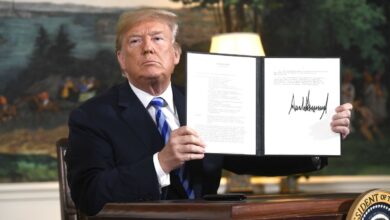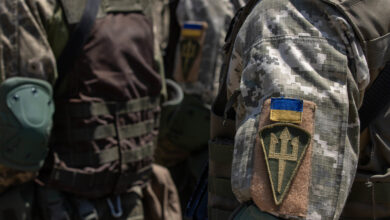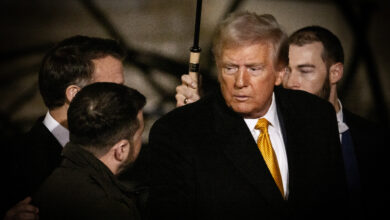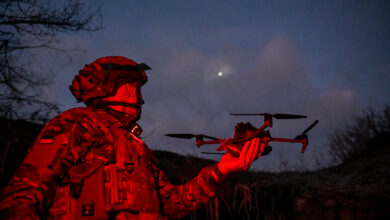Russia is considering lowering the threshold for activating its nuclear weapons, a top foreign ministry official has revealed.
The move comes amid growing concerns that Russian President Vladimir Putin might order the use of nukes in Ukraine as Western support beefs up.
Deputy Foreign Minister Sergey Ryabkov told reporters Thursday that Moscow is constantly analyzing the possibility of lowering the bar for nuclear weapons usage due to the changing security situation.
“At the moment, nothing has changed in this regard, but the situation itself is changing,” he said. “As a result, the way basic documents in this field relate to the needs of maintaining our security is [being] constantly analyzed.”
Earlier this week, state-run TASS news agency reported that Russia will conduct a tactical nuclear weapons exercise involving air and naval forces, as ordered by Putin.
‘Lower Than Declared’
In 2020, Putin approved a new nuclear deterrence policy that allows the use of nukes in scenarios where the country’s existence as a state is threatened.
Nuclear strikes are also permitted in defense against enemy attacks using conventional weapons.
However, a number of documents seen by Financial Times have revealed an alarming scenario: Russia’s nuclear threshold is lower than what was previously made public.
In the documents, the use of nuclear weapons is justified when units defending its border areas have been defeated and an enemy was able to land on Russian territory.
The Russian military could also use its nukes following the destruction of a maximum of three airfields, three cruisers, two coastal command centers, and 20 percent of the country’s ballistic missile submarines.
“This is the first time that we have seen documents like this reported in the public domain,” Russian military expert Alexander Gabuev said. “They show that the operational threshold for using nuclear weapons is pretty low if the desired result can’t be achieved through conventional means.”












